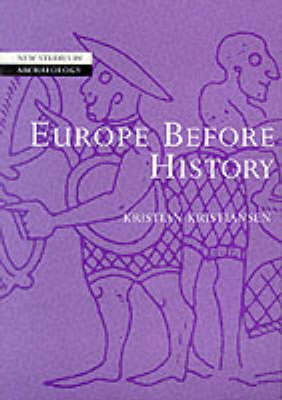New Studies in Archaeology
1 total work
The societies of the European Bronze Age produced elaborate artifacts and were drawn into a wide trade network extending over the whole of Europe, even though they were economically and politically undiversified. Kristian Kristansen attempts to explain this paradox using a world-systems analysis, and in particular tries to acount for the absence of state formation. He presents his case with a powerful marshalling of the evidence across the whole of Europe and over two millennia. The result is the most coherent overview of this period of European prehistory since the writings of Gordon Childe and Christopher Hawkes. A great strength of this book is the broad European perspective, which allows the author to address some of the larger questions that have been raised in the study of the Bronze Age. It captures the complexity of a prehistorical world at different levels of integration and interaction from local to global.
